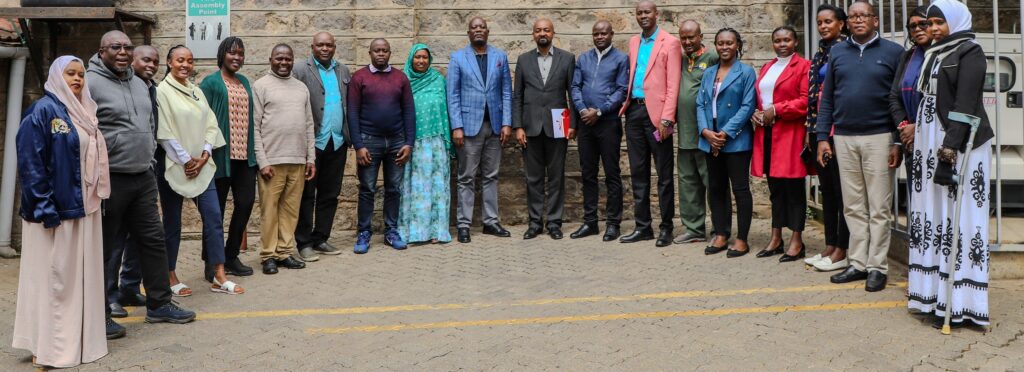
By Churchill Simiyu
Nairobi, Kenya – July 16, 2025 – In a powerful and urgent message to the nation, the Kenya Devolution Civil Society Organizations Working Group (KDCWG) has raised red flags over what it terms a deliberate erosion of Kenya’s hard-won devolution framework. Representing civil society networks across all 47 counties, the KDCWG issued a rallying call to defend the principles of devolution enshrined in the 2010 Constitution, warning that creeping centralization, executive overreach, and political patronage threaten to undo a decade of progress.
At the core of the group’s concerns is a disturbing trend of State House-controlled development schemes, which it likens to a return to the old, centralized governance model. “We are witnessing county leaders queuing at State House for development pledges. This is not devolution—it’s regression,” the group declared in a statement that paints a picture of institutional backsliding.
The KDCWG strongly condemned the National Government Constituencies Development Fund (NG-CDF) and recent presidential initiatives that bypass constitutionally established county governments and the oversight role of Parliament. According to the group, such unilateral executive actions undermine transparency and public accountability. “Executive directives cannot replace constitutional processes,” they warned, emphasizing the need to uphold the rule of law.
Perhaps most alarming is the revelation that the National Treasury is allegedly withholding Ksh. 272 billion, earmarked for functions already costed and devolved by law. The Omnibus Bill—crucial for formalizing the full transfer of these functions—remains inexplicably stuck at the Attorney General’s office, further delaying grassroots service delivery and weakening the capacity of counties to serve their people.
The KDCWG laid out a clear and firm set of demands:
Immediate and full transfer of all constitutionally devolved functions, along with adequate funding.
Total rejection of the NG-CDF Bill currently before the Senate;
An end to political patronage and executive-controlled development agendas;
Restoration of Parliament’s central role in development planning and budgeting;
Elimination of duplicated roles between the national and county governments; and a complete overhaul of the Devolution Conference to make it inclusive and citizen-centered.
The group criticized the Devolution Conference for drifting away from its original mission of grassroots inclusion, calling it “a luxury event for elites” that has sidelined the very citizens it was meant to empower. “What was once Wanjiku’s conference has become inaccessible and symbolic of exclusion,” they said, urging reforms to return the event to the people.
The statement, endorsed by the KDCWG Steering Committee—which includes representatives from all eight regional economic blocs—serves as a powerful reminder that devolution is not merely a bureaucratic arrangement, but a lifeline for millions of Kenyans. Their message is unambiguous: devolution must work for Wanjiku, the ordinary Kenyan—not political elites or centralized power structures.
As Kenya marks over a decade since the birth of its devolved system, the KDCWG’s call is both a warning and a call to arms. The vision that birthed devolution—a more equitable, accountable, and citizen-driven form of governance—is under threat. And unless swift action is taken, the country risks squandering one of its most transformative reforms.
The time to act, the KDCWG says, is now.

More Stories
NEMA Conducts Public Forum on Draft E-Waste and Environmental Assessment Regulations
TVET and Micro-Credentials Key to Youth Employment, Says Dr. Ekrah Ndung’u
NATIONAL LAND COMMISSION CEO JOINS COUNTY FIRST LADIES FOR LAUNCH OF 2025–2028 STRATEGIC PLAN**